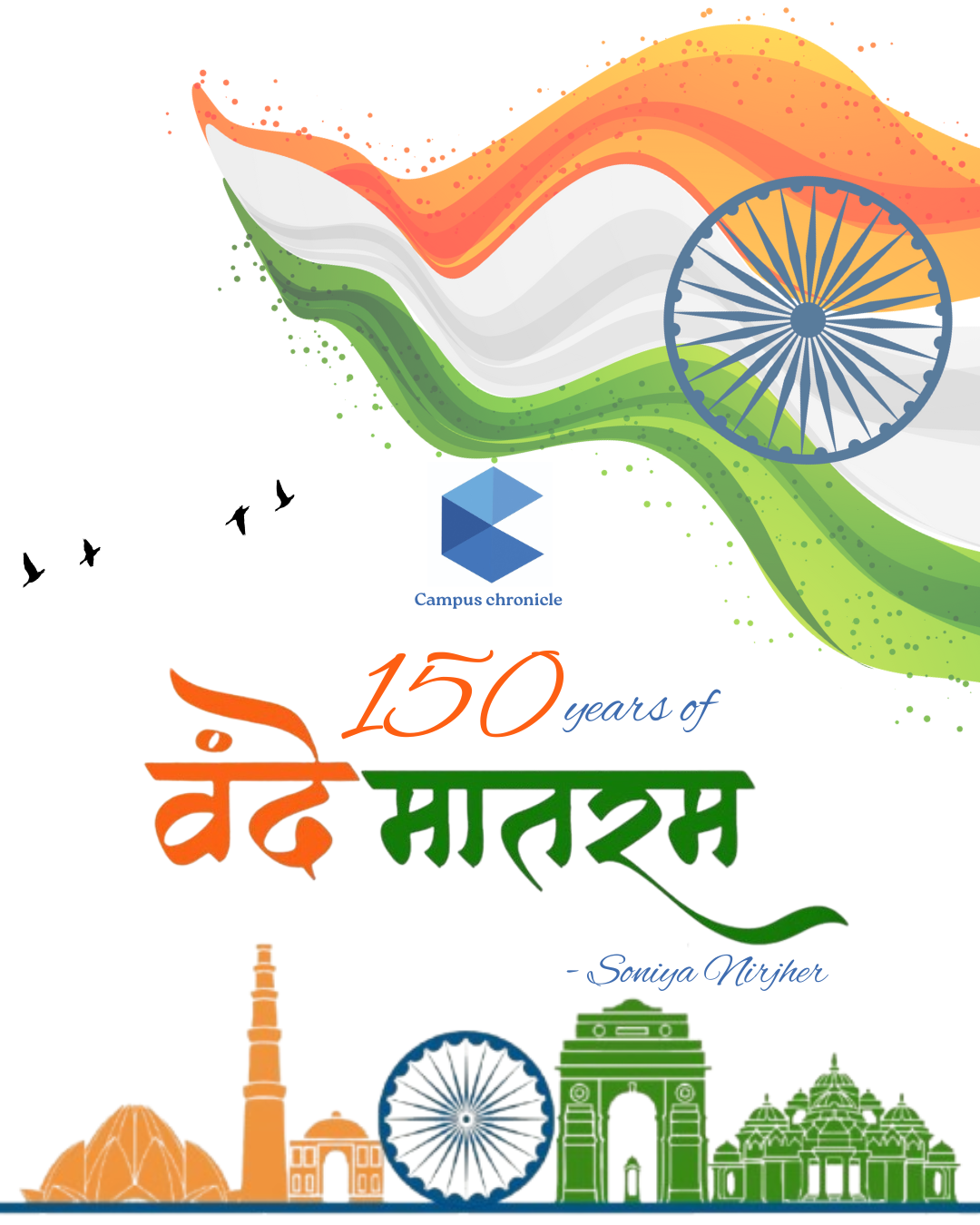BY: SONIYA NIRJHER
Vande Mataram is one of the most revered and meaningful national songs, symbolizing the country’s rich heritage and unwavering spirit. The phrase “Vande Mataram” translates to “I bow to my motherland”, encapsulating the deep love and respect Indians have for their country. The song portrays India as a nurturing mother, who cares for, protects, and provides for her children, evoking a sense of unity and patriotism.
The song was written by Bankim Chandra Chatterjee, one of India’s greatest writers and thinkers. Born in 1838 in Bengal, he had a deep affection for his country. He believed that Indians should feel proud of their country and stay united. During his lifetime, India was under British rule, and people had very limited freedom. Life was full of hardships and many citizens felt anxious and powerless. Bankim Chandra wanted to inspire hope, courage and patriotism through his words. This led him to write a beautiful poem praising the motherland, which later became the iconic song, Vande Mataram.
The poem first appeared in his novel Anandamath, published in 1882. The novel described a group of brave patriots who dedicated their lives to protecting the nation. When readers encountered the poem in the book, it stirred strong feelings of devotion and pride. The poem quickly spread among people, becoming popular across the country, because it touched their hearts deeply.
During the freedom struggle, when people longed for freedom but lacked unity and strength. Vande Mataram emerged as a powerful symbol of inspiration. Freedom fighters sang it during marches, gatherings, and protest movements. The song encouraged them to stay determined and fearless even when they faced punishment or threats. It became a source of strength, motivating them to continue their fight for freedom.
The British government recognized the influence of the song and feared that it would unite the masses. Due to this, they tried to ban it. However, the more they attempted to suppress it, the more strongly people held on to it. Indians continued to sing it secretly and passed it from place to place. Vande Mataram had become the heartbeat of the nation, giving courage to millions striving for independence.
The poem describes India not only as a mother but also as a land of extraordinary beauty. It mentions fertile fields, gentle winds, flowing rivers, lush forests, and blooming flowers. It praises the purity, richness, and grace of the land. The song also highlights the strength of the motherland—portraying her as gentle and loving, yet strong and protective. This powerful combination of beauty and strength makes Vande Mataram truly special.





